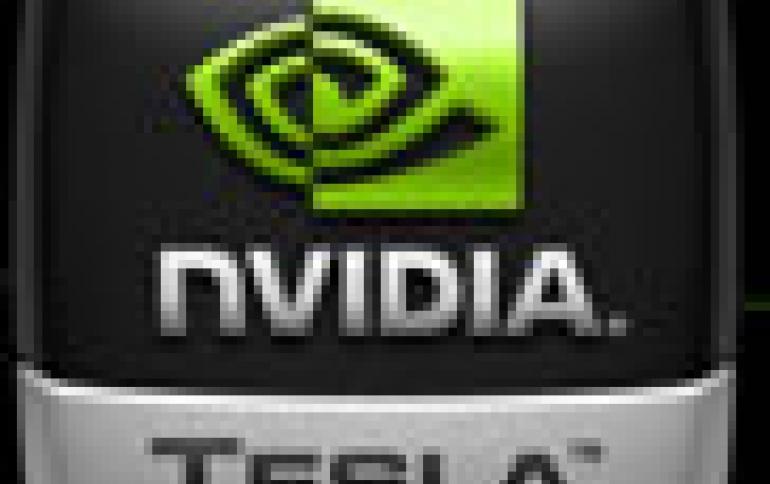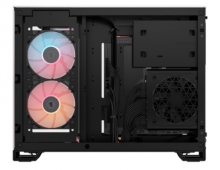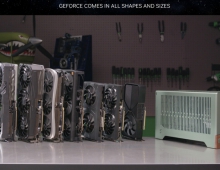
NVIDIA 64-bit GPUs Get Into Servers
64-bit ARM processors will start delivering breakthrough performance in servers, aided by graphics cards used in some of the world’s fastest computers. The first high-performance servers with ARM 64-bit processors have been announced with Nvidia’s Tesla graphics cards. The servers from Cirrascale, E4 Computer and Eurotech were announced at the International Supercomputing Conference in Leipzig, Germany.
ARM64 server processors were primarily designed for micro-servers and web servers because of their energy efficiency. Now, they can tackle HPC-class workloads when paired with GPU accelerators using the new NVIDIA CUDA 6.5 parallel programming platform, which supports 64-bit ARM processors.
GPUs provide ARM64 server vendors with the muscle to tackle HPC workloads, enabling them to build high-performance systems that maximize the ARM architecture's power efficiency and system configurability.
Featuring Applied Micro X-GeneARM64 CPUs and NVIDIA Tesla K20 GPU accelerators, the new ARM64 servers will provide efficiency and high-performance computing options to drive compute-intensive HPC and enterprise data center workloads. In addition, users will immediately be able to take advantage of existing CUDA-accelerated scientific and engineering HPC applications by simply recompiling them to ARM64 systems.

"NVIDIA has built the industry's most comprehensive accelerated computing platform -- including servers, software, development tools, processors, and related technologies -- optimized for the HPC industry," said Ian Buck, vice president of Accelerated Computing at NVIDIA. "GPUs are the enabling technology that allow server vendors to build HPC-class systems around flexible ARM64 processors. The result is new, highly innovative computing solutions for HPC."
The first GPU-accelerated ARM64 development platforms will be available in July from Cirrascale Corp. and E4 Computer Engineering, with production systems expected to ship later this year. The Eurotech Group also plans to ship production systems later this year. System details include:
- Cirrascale RM1905D - High-density two-in-one 1U server with two Tesla K20 GPU accelerators; provides high-performance, low total cost of ownership for private cloud, public cloud, HPC, and enterprise applications.
- E4 EK003 - Production-ready, low-power 3U, dual-motherboard server appliance with two Tesla K20 GPU accelerators, designed for seismic, signal and image processing, video analytics, track analysis, web applications and MapReduce processing.
- Eurotech - Ultra-high density, energy efficient and modular Aurora HPC server configuration, based on proprietary Brick Technology and featuring direct hot liquid cooling.
The Cirrascale RM1905D and the E4 EK003 have eight-core AppliedMicro X-Gene processors and Tesla K20 GPUs, with support for up to DDR3 memory, 10-gigabit ethernet and PCI-Express 3.0. The systems come with 400 watt power supplies. The Cirrascale 1U server is for cloud and high-performance applications, while the E4 Engineering 3U server is for Web computing, analytics, video rendering and science applications.
AppliedMicro’s X-Gene chip is based on its proprietary chip design, and has server features such as error correction and RAS (reliability, availability and serviceability), which are typically not available in ARM mobile chips. The X-Gene also has I/O, networking and signal-processing components.
Hewlett-Packard, Dell and others also have plans to ship 64-bit ARM servers that could help cut electric bills in data centers.
Nvidia also faces competition from AMD, which is developing an ARM server processor and sells graphics processors such as FirePro for the supercomputing space.
In related news, Nvidia has cancelled plans to develop a 64-bit CPU processor for servers (Project Denver), three years after it said it would build such a chip.
The company is instead focusing its latest 64-bit Tegra chips on mobile and embedded devices.





















